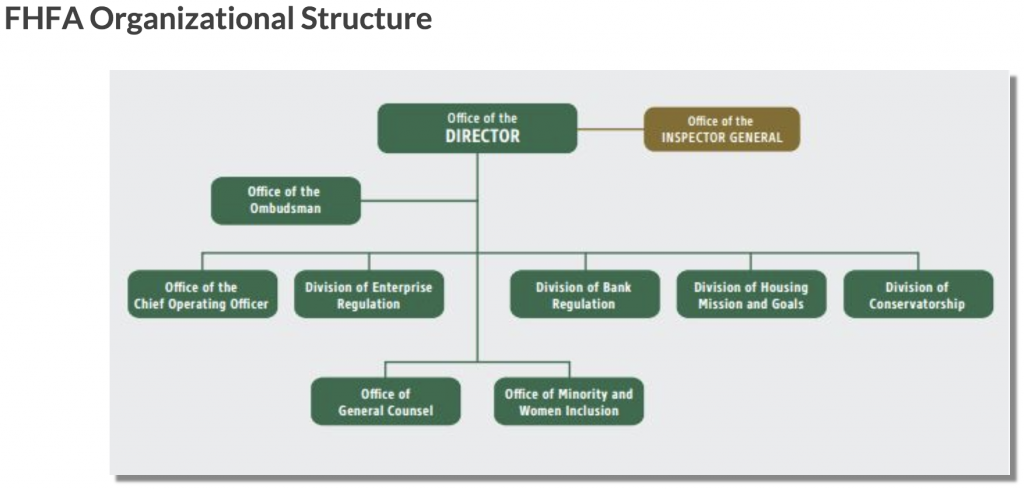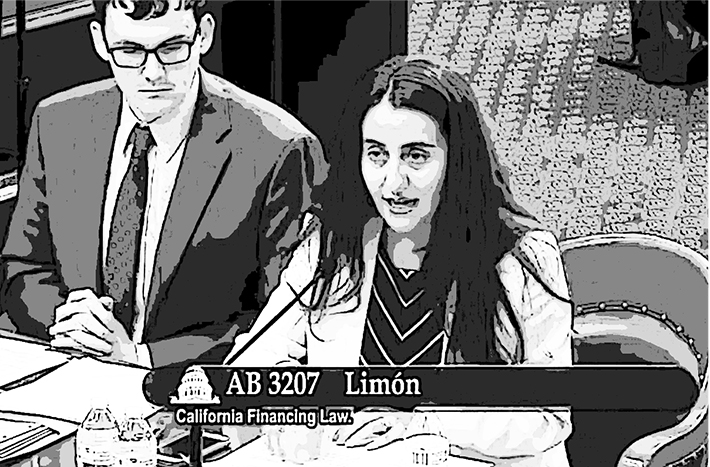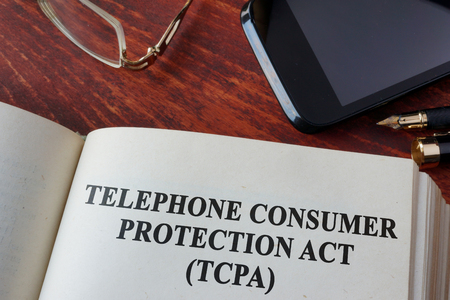Legal Briefs
Notorious Tampa Bay Loan Broker Likely Headed Back to Jail
July 27, 2018 Tampa Bay loan broker Victor Clavizzao pleaded guilty this week to one count of wire fraud, which could land him in prison for up to 20 years. This would not be his first time behind bars. In 2009, a federal judge sentenced him to five years for conspiring to fraudulently obtain nearly $6 million in mortgage loans.
Tampa Bay loan broker Victor Clavizzao pleaded guilty this week to one count of wire fraud, which could land him in prison for up to 20 years. This would not be his first time behind bars. In 2009, a federal judge sentenced him to five years for conspiring to fraudulently obtain nearly $6 million in mortgage loans.
This time, Clavizzao, 55, cheated a church congregation out of $16,350 that they had set aside to build a new church. According to a Tampa Bay Times story, shortly after leaving prison in 2014, Clavizzao was still on probation when he created Key Business Loans. Around the same time, he met husband and wife, Sam and Minnie Wright. Minnie Wright is the pastor of the Tampa Bay-area New Testament Outreach Holiness Church #2, and she asked Clavizzao if his company would be able to make a loan to their church.
According to the Tampa Bay Times story, Clavizzao said “Absolutely.”
Clavizzao, who used the named Victor Thomas, ingratiated himself with the Wrights and other church congregants and told them that not only could he help them obtain a $650,000 loan, he could also handle the purchase of the plot of land along with other details. The church gave Clavizzao a series of initial payments – for an architect and for an environment inspection of the land – and when the Wrights started getting suspicious, Clavizzao disappeared.
Last year, suspected of defrauding the Wrights and others, Clavizzao told Tampa Bay Times in a phone interview that his business, Key Business Loans, was completely legitimate.
“Knock yourself out, I’m not doing anything wrong,” he said, acknowledging that he discloses his criminal history to prospective borrowers. “Any person who has a problem about my past can choose to do business with me or not do business.”
In July of 2014, Clavizzao presented the Wrights with a “Proposal Letter for Guaranteed Business Purchase Loan” from Key Capital Commercial Funding, a New York City-based company he said he had ties with. The proposal outlined the terms of a 15-year, $650,000 loan at 5.1 percent interest. The Wrights signed it. However, what the Wrights did not know at the time was that there was no Key Capital Commercial Funding in New York City, or anywhere else.
In part because of persistent reporting on Clavizzao from Susan Taylor Martin at Tampa Bay Times, the Wrights were able to learn more about Clavizzao’s criminal past and the FBI got involved.
After Clavizzao’s recent guilty plea, he is currently out on bond pending his sentencing. A date has not been set.
JTT Funding STILL Impersonating Rival Funding Company, Court Docs Allege
July 26, 2018 A Court-ordered injunction hasn’t prevented New York ISO JTT Funding from continuing to pretend to be Accel Capital, a new motion filed in New York County this week argues. In May, JTT Funding failed to appear in court to defend itself against claims it was impersonating Accel Capital when contracting with merchants. After reviewing the evidence, the judge ordered JTT to stop using the name, logo and likeness of Accel.
A Court-ordered injunction hasn’t prevented New York ISO JTT Funding from continuing to pretend to be Accel Capital, a new motion filed in New York County this week argues. In May, JTT Funding failed to appear in court to defend itself against claims it was impersonating Accel Capital when contracting with merchants. After reviewing the evidence, the judge ordered JTT to stop using the name, logo and likeness of Accel.
Allegedly, JTT is undeterred and is continuing to represent itself as Accel Capital. When merchants deceived by the imposter accidentally reach out to the real company, they learn they’ve been duped. Accel attached contracts as evidence between merchants and the imposter that are dated after the injunction was issued, the docket shows. The phone # in the phony contracts belongs to JTT Funding, according to a Google search.
One of those contracts promises a merchant that they have been approved for $818,000 and in order to obtain the funding they need to first send a payment of $36,932.70 to the imposter.
JTT Funding is the same company that was alleged to have forged a Confession of Judgment last year. Like in the Accel case, JTT never appeared to defend itself.
The Accel Capital suit can be found in the New York Supreme Court under Index Number: 153447/2018
Like Bureau of Consumer Financial Protection, Court Declares FHFA Unconstitutional
July 19, 2018The Bureau of Consumer Financial Protection (Bureau), created largely by Democratic politicians in the wake of the 2008-10 financial crisis, has not been the most popular government agency under the current administration. That said, a June court decision declared that the agency itself is, in fact, not very democratic.
The controversial decision came from District Judge Loretta Preska of the New York’s Southern District who declared the Bureau to be unconstitutional based on its single directorship structure. (The current structure features a director who has full control over decisions with no requirement of a vote or a consensus from other colleagues or parties).
This week, the Court of Appeals for the Fifth Circuit made a ruling against the Federal Housing Finance Agency (FHFA) for the same reason – because it deemed the agency to be unconstitutional based on its single directorship structure.

The FHFA was established by the 2008 Housing and Economic Recovery Act to ensure that Fannie Mae, Freddie Mac and the Federal Home Loan Bank System are operating in a safe and sound manner so they can serve as a reliable source of liquidity and funding for housing finance and community investment.
The defense for this decision against the FHFA cites heavily from a 2016 ruling, written by Supreme Court Justice nominee Brett Kavanaugh, that asserts that the Bureau is unconstitutional in large part because the director cannot even be removed the president. Part of this week’s FHFA decision is as follows:
“Congress encased the FHFA in so many layers of insulation—by limiting the President’s power to remove and replace the FHFA’s leadership, exempting the Agency’s funding from the normal appropriations process, and establishing no formal mechanism for the Executive Branch to control the Agency’s activities—that the end ‘result is a[n] [Agency] that is not accountable to the President.’ The President has been ‘stripped of the power [the Supreme Court’s] precedents have preserved, and his ability to execute the laws—by holding his subordinates accountable for their conduct—[has been] impaired.'”
The 2016 decision decreeing that the Bureau is unconstitutional is similar:
“Other than the President, the Director of the Bureau is the single most powerful official in the entire United States Government, at least when measured in terms of unilateral power. That is not an overstatement. What about the Speaker of the House, you might ask? The Speaker can pass legislation only if 218 Members agree. The Senate Majority Leader? The Leader needs 60 Senators to invoke cloture, and needs a majority of Senators (usually 51 Senators or 50 plus the Vice President) to approve a law or nomination. The Chief Justice? The Chief Justice must obtain four other Justices’ votes for his or her position to prevail…”
Clearly, some judges feel that the Bureau and the FHFA are unconstitutionally formed. Whether these agencies will change their structure in response to these decisions is unclear.
California Bill May Disadvantage Small Brokers
July 17, 2018A California State Assembly bill that carefully defines what a broker is, could significantly affect small, unlicensed brokers, according to Tom McCurnin, an attorney at Barton, Klugman and Oetting in Los Angeles.
Assembly bill 3207 enumerates the ways that the bill would depart from the current law. Most notably, the definition of a broker would be far more precise. The current California Licensing Law, which requires brokers to be licensed, defines a broker as “anyone who is engaged in the business of negotiating or performing any act as a broker in connection with loans made by a finance lender.”
 Tom McCurnin – Barton, Klugman & Oetting LLP
Tom McCurnin – Barton, Klugman & Oetting LLP“It’s a circular definition,” McCurnin said. “It presently says that a broker is someone who is brokering transactions.”
Essentially, it defines a broker as a broker, leaving plenty of room for ambiguity.
“With respect to registering to conduct business in the state of California, we’ve got tons of brokers doing deals in California, but they’re not licenced here,” McCurnin said. “They do deals in California, but they’re located in Florida or New York or Michigan. They’re making money in the state of California. Why shouldn’t they pay their fair share of taxes?”
People can always evade the law and not get licenced. But the idea behind this bill is that by making the definition of a broker perfectly clear, it’s no longer possible for a broker to make an argument that they’re not really a broker. With the language in the bill, a broker would be in clear violation of the law if they don’t obtain a licence.
The new definition of a broker would be “anyone who, among other things, transmits confidential data about a prospective borrower to a finance lender with the expectation of compensation.” McCurnin notes that “expectation of compensation” is an important phrase, currently used to describe real estate brokers, because it states clearly that the broker intends to earn money from the consumer. The proposed definition in the bill continues to define a broker as someone who “participates in any loan negotiation between a finance lender and prospective borrower, participates in the preparation of loan documents, communicates lending decisions or inquiries to a borrower, or charges a fee to a prospective borrower for any services related to an application for a loan from a finance lender.”

This definition leaves little room for debate. So what does getting a California State broker licence entail? It requires that a broker have at least $25,000. Beyond this, McCurnin says it inquires primarily about three other things: 1) if you have a criminal record (fingerprints are required), 2) what type of loans you intend to broker (secured, unsecured, etc.), and 3) the size of the loans you intend to broker. There are different regulations for different loan sizes.
Being licensed requires being registered to conduct business in the state of California. And a registered business must pay taxes on earnings in the state. With this in mind, McCurnin said the passage of this bill could be a win for California in that it could result in more out-of-state brokers getting registered and paying taxes on their earnings in the state.
At the same time, should the bill pass, McCurnin thinks it would be a big loss for the small broker who is either unable to show $25,000 or who might have something unsavory to hide. But if the small broker working from his basement has enough capital and is willing to state what he intends to broker in California, then obtaining the license shouldn’t be a problem.
The bill passed in the state Assembly and is being reviewed in the Senate. An amendment to the bill was made on July 5. Another California bill of great significance to the alternative lending industry is SB-1235, which has passed in the state Senate and is being reviewed in the state Assembly. McCurnin said he believes that the broker bill will pass.
“California is a very liberal place,” McCurnin said. “It’s like another country.”
How to Avoid Being Sued by a Professional TCPA Plaintiff
July 13, 2018
Did you know that if you receive an unwanted solicitation call on your private cell phone or residential landline, you can win between $500 and $1,500 in damages from the offending company? The company can be charged for violating a statute of the 1991 Telephone Consumer Protection Act (TCPA), which prohibits companies from calling consumers without their express permission. You might not know about this, but others know about it all too well.
Some people use this TCPA statute as a way of making money, by purchasing multiple phone numbers in the hope they will receive unsolicited phone calls that violate the TCPA statute. And if they do, they sue. deBanked previously explored “professional plaintiffs” like this, with a focus on those who have come up against funding companies.
According to Michael O’Hare, CEO of Colorado-based Blindbid, people who manipulate the TCPA statute for profit also target lead generation companies like his. O’Hare is currently being sued by a plaintiff for several million dollars in a class action lawsuit. The claim is that Blindbid allegedly made five unsolicited calls in 2016 to the plaintiff’s plumbing company. (According to David Klein, Managing Partner at Klein Moynihan and Turco, there is a murky area in the TCPA regulation where, if a cell phone is used for both personal and business use, the phone can be considered a personal phone, protected under TCPA.) In O’Hare’s case, upon further discovery, it was determined that only one of the five alleged calls actually came from Blindbid. But O’Hare says that the number was opted in and manually dialed. Regardless, O’Hare’s plaintiff is a pro, what some might call a “professional plaintiff.”
 Over the last six years, this plaintiff participated in four major class action lawsuits that have led to combined settlements of $31 million, according to O’Hare. The plaintiff has also filed 34 cases in federal court since 2016, O’Hare said.
Over the last six years, this plaintiff participated in four major class action lawsuits that have led to combined settlements of $31 million, according to O’Hare. The plaintiff has also filed 34 cases in federal court since 2016, O’Hare said.
What is noteworthy about O’Hare’s case is that it’s part of what he says is a trend towards class action lawsuits based on TCPA violations, and often brought on by professional plaintiffs. O’Hare said it’s no coincidence that his plaintiff waited for two years to sue.
“The longer a plaintiff waits, the more members he can bring into the class. And the more members in the class, the larger settlement,” O’Hare said.
As a way to transform O’Hare’s lawsuit into a class action suit, he said that his plaintiff’s attorney has made the argument that if Blindbid violated his client’s TCPA rights to privacy with the one unsolicited call, then Blindbid likely violated others as well. So in discovery, the plaintiff’s attorney wants to compel Blindbid to turn over its phone records for the past two years to prove that Blindbid had “express written consent” from the other merchants it called. In the age of the internet, “express written consent” translates to filling out an online form where the individual consents to receive a phone call.
To satisfy the attorney’s request, Blindbid would have to match every phone number that was called with a corresponding computer IP address. This should be doable, but O’Hare says that professional plaintiffs, like his, deny that they ever filled out an online lead form, or that the IP address O’Hare has on record belongs to them.
“In the past, if there was an alleged TCPA violation, most companies could settle for a few thousand dollars to $10,000 depending on the number of violations,” O’Hare said. “Now there are these are multi-million dollar settlements.”
Unlike the fines of years past, these class action lawsuits can sink your company. While O’Hare said that there is no way to completely protect one’s company from being sued, below are some of his recommendations.
Have express written consent of all the merchants you call
Online consent is valid if the text explicitly states to the user that he is giving, in effect, express written consent to be contacted by your company by phone, text and/or email.
Register your company with Federal and State Do Not Call Registries.
Respect merchants’ requests
If they do not want to be called any longer, put their numbers on your “Do Not Call” list.
Have a written “Do Not Call” policy
Have a TCPA attorney review the policy and include a copy in your company employee guide.
Find a good TCPA scrubbing service
These are services that have many of the numbers that belong to professional plaintiffs and they monitor for newly registered phone numbers. They tell you which numbers to remove from your lists. Some good scrubbing services are TCPALitigatorList.com and DNC.com.
Don’t buy lists from overseas
These lists are full of professional litigator phone numbers you are taking a huge risks.
Never autodial / robo call
Robo calls are the most dangerous type of calls you can make unless you have a full opt-in list with express written consent from each of the merchants. Robo calls and text messaging TCPA violations are the easiest TCPA cases for plaintiffs to win and the settlements are higher. Every robocall or text is fined. The use of an autodialer is one of the elements to prove a TCPA violation. If you use an auto dialer with human intervention, like EVS 7, you can argue that your autodialer calls are manual calls. Still, use caution.
Consult with a TCPA attorney
I would advise every company that does any outbound calling to consult with a TCPA attorney about best practices. An ounce of prevention is worth a pound of cure.
MCA Funder Says Debt Settlement Company Operating Illegally Without a Budget Planning License
July 11, 2018 Merchant Cash Advance companies are on the warpath against debt settlement companies. In the latest legal offensive, High Speed Capital alleges that Corporate Debt Advisors’ debt settlement business is really just an unlicensed Budget Planning operation, a misdemeanor criminal offense in New York.
Merchant Cash Advance companies are on the warpath against debt settlement companies. In the latest legal offensive, High Speed Capital alleges that Corporate Debt Advisors’ debt settlement business is really just an unlicensed Budget Planning operation, a misdemeanor criminal offense in New York.
High Speed’s petition cites New York General Business Law § 455. “So-called ‘debt negotiation’ and ‘debt settlement’ companies that negotiate settlements between debtors and creditors on behalf of the debtors and which may coordinate or supervise payment by the debtors to the creditors in exchange for fees from the debtor are engaged in Budget Planning,” they say. “Budget Planning agreements with unlicensed entities are void for illegality and cannot be upheld by the Court.”
At issue in this action is that the transfer of funds from the merchant to Corporate Debt Advisors is allegedly fraudulent. High Speed won a judgment against the merchant in October 2017 and believes those funds belong to it. Corporate Debt Advisors has refused to send the funds in its possession to High Speed and has instead tried to negotiate. High Speed’s petition before the Court asks that Corporate Debt Advisors turn over the funds immediately to High Speed.
The case can be found in the New York Supreme Court, Erie County under Index #: 810673/2018. You can view the petition here.
Usury Argument in Merchant Cash Advance Suit Backfires Horribly
June 25, 2018 A New York Supreme Court judge in Erie County, New York has had enough with attorneys trying to argue that merchant cash advances are loans. In Yellowstone Capital, LLC v. Central USA Wireless, LLC et al (Index No: 811837-2017), the Honorable Timothy J. Walker balked at the defendants’ argument that the MCA agreement was usurious.
A New York Supreme Court judge in Erie County, New York has had enough with attorneys trying to argue that merchant cash advances are loans. In Yellowstone Capital, LLC v. Central USA Wireless, LLC et al (Index No: 811837-2017), the Honorable Timothy J. Walker balked at the defendants’ argument that the MCA agreement was usurious.
“The only ‘proof’ that Defendants submit in support of their usury claim are self-serving misconstructions of cherry-picked provisions of the merchant agreement, and an outright disregard for contrary provisions contained in that document,” he opined.
Citing dozens of trial court decisions in merchant cash advance cases and binding precedent established by Champion Auto Sales, the judge not only shot the usury argument down but also awarded the recovery of attorney fees to the MCA company for having to defend themselves against something so frivolous.
“The Court determines, in light of the history of these litigated matters and known binding precedent, Plaintiff is entitled to recover reasonable attorneys’ fees and costs incurred in defending the Motion [..],” he ordered.
Lawyers Weigh in on Federal Decision That CFPB is Unconstitutional
June 22, 2018In light of a federal court ruling yesterday that the structure of the Consumer Financial Protection Bureau (CFPB) is unconstitutional, deBanked spoke with some lawyers to get their perspective on what this decision could mean.

Alan Kaplinsky, Partner, Ballard Spahr
“I think it will sow more confusion related to the CFPB. I think it’s important to note that this opinion – while it is precedent that could be cited in other cases…it’s not binding on any other court anywhere in the country, including in the Southern District of New York. That being said, I anticipate that the CFPB will appeal [the decision] if for no other reason than because they have other cases. Ultimately, I would anticipate that the case will end up in the U.S. Supreme Court.”

Lucy Morris, Partner, Hudson Cook (previously a Deputy Enforcement Director at the CFPB)
“The bottom line is that it creates yet more uncertainty for the bureau, for industry and for consumers. Is this bureau legitimate or not? And if not, what does that mean for all of the many decisions and actions taken by the former [CFPB] director Cordray and the current acting director, Mulvaney.
Maybe this can add to a momentum to create a bipartisan commission to finally resolve this, and to give everyone a commission that…avoids the wide pendulum swings that have been happening. This requires a legislative fix, which is challenging of course.”

Lawrence Kaplan, Of Counsel, Paul Hastings
“Typically, in a case like this, you would have a circuit split, where now you have one circuit saying yes and one circuit saying no. And ultimately that would go up to the supreme court. But you could have the administration saying ‘We’re not going to defend this.’ [Given the administration’s unfavorable attitude toward the CFPB], it’s likely that you’re not going to see anyone vigorously defend the agency.
As for alternative lenders, [these] are state issues. And as a result, [lenders] are not off the hook…At the end of the day, everyone will still have to comply with a patchwork of state laws. You’re really taking away the federal hammer. So, [certain cases] may no longer be a federal case. Now, in some ways, be careful what you wish for, because now you have to face 50 executioners [because] a lot of the states would defer to and join with the feds.”





























